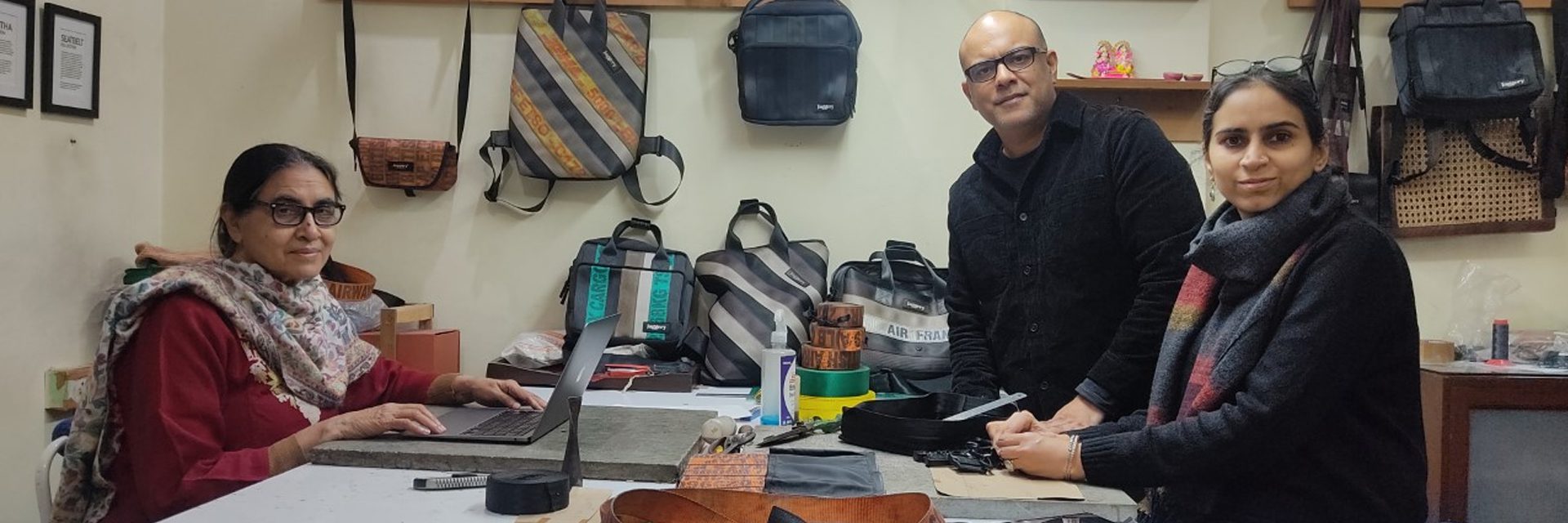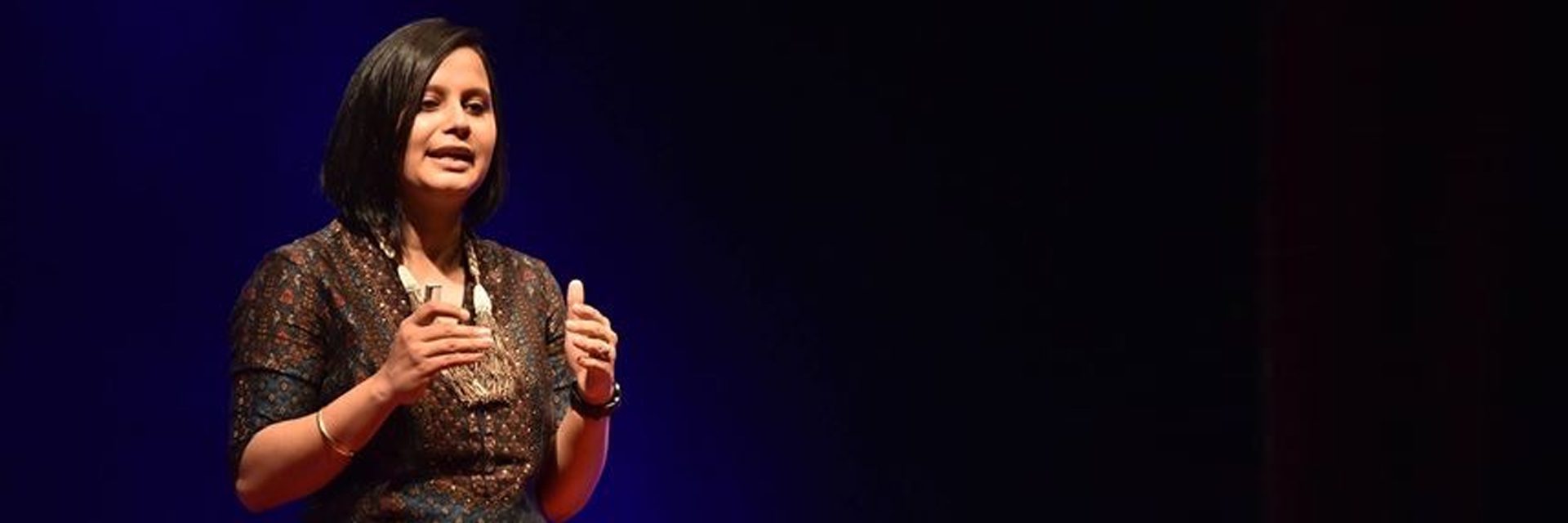(February 6, 2024) Interested in sustainability, 23-year-old Samir Lakhani found himself on a muddy trail in one of the villages of Cambodia in 2014 when he caught the sight of a woman bathing her child with laundry detergent. A young volunteer from Pennsylvania, US, Samir was shocked and disturbed. “Something as basic as soap was missing in the majority households of rural Cambodians,” Samir tells Global Indian. Keen to bring about a change, he found his solution in Eco Soap Bank which supplies recycled soap to the developing world with a mission to promote basic hygiene, restore health, and employ marginalised women. Started in 2014, the non-profit venture now has recycling centres in five countries – Cambodia, Nepal, Tanzania, South Africa, and Sierra Leone.
“Each year 25,000 metric tonnes of soap bars make it to the landfills,” informs Samir who has been able to save 4.5 million kilos of soap bars from entering the landfill with Eco Soap Bank. “Moreover, we have provided soap to over 9 million people in 30 countries so far,” adds the social entrepreneur who was on the 2020 Forbes 30 Under 30 list.
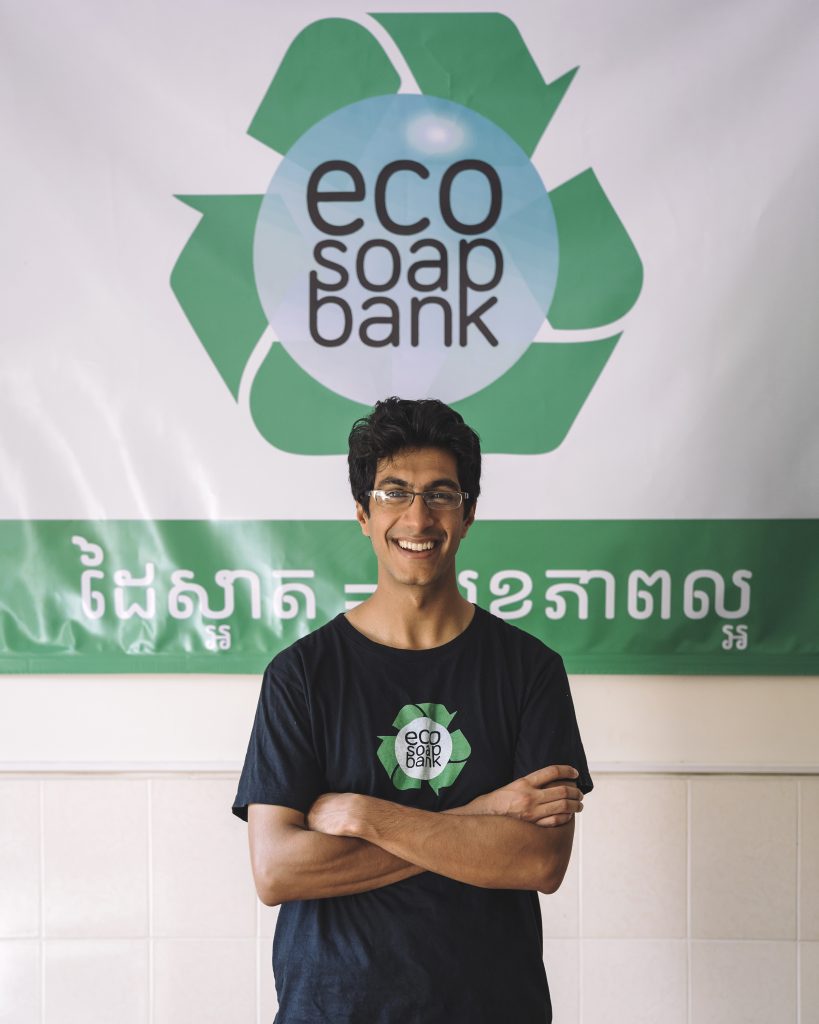
Samir Lakhani at Eco-Soap Bank headquarter in Siem Reap, Cambodia.
The journey that changed it all
With their roots in Gujarat, his mom was born in Tanzania while his dad is from Uganda, who like other South Asians had to face sudden expulsion at the hands of dictator Idi Amin in 1972. He relocated to the US where he studied at Brown University. His mom, a paediatrician, travelled as a youngster and after studying in Iran for some time, she secured admission to the University of Pennsylvania. Growing up, Samir heard stories about Africa from his parents, which left him intrigued. “I was eager to see what Africa was all about. During high school, I got the opportunity to visit the towns where my parents were born and understand the context in which they were born. Joining the dots of their origin to their final destination was pretty remarkable. It left me with a lot of energy but also the commitment to work in those areas because of the quality of life I had in the US,” he adds.
View this post on Instagram
Passionate about eco-conscious practices, Samir enrolled in environmental studies at the University of Pennsylvania, and an internship with a climate change resilience group led him to Cambodia. But what he noticed in the next few days in a village in Cambodia left him shocked and heartbroken – everyone was using laundry detergent to bathe. “I felt an incredible amount of guilt that something as affordable as soap was out of reach for a majority of the population in the country. I was very disturbed and couldn’t get that scene out of my head.” Upon his return to the hotel room in Siem Reap, he saw the soap bar replaced by housekeepers. “I realised I had barely used the last one.” This epiphany led to the birth of Eco Soap Bank with the aim to recycle soap and distribute it to the underprivileged. “I realised that something as simple as soap was not available in a village 5 miles away, and the same soap was thrown away daily for luxury tourists. Those quick realisations organically created the organisation.”
Recycling soaps for the underprivileged
The process began with Samir going from hotel to hotel in Cambodia asking them to collect their used soaps for Eco Soap Bank. But the request was met with resistance. “We initially got a strong pushback because it required them to do extra work and some thought it was a strange request.” However, with time their reputation grew hotel-by-hotel, and many started collecting soap for Eco Soap Bank.
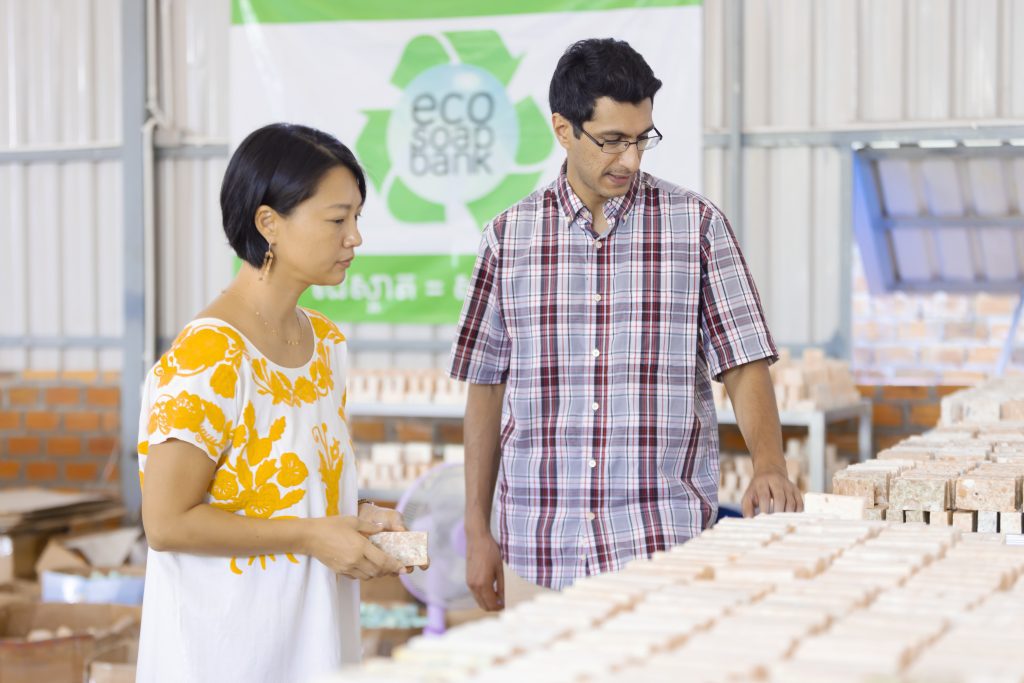
While Samir started experimenting with a grinder in his hotel room, crushing the soap into smaller particles, he also kept visiting the nearby rural areas to understand the people and their lack of awareness of basic hygiene. The results were shocking. Most people put the onus of health issues in their community on bad karma. “It was the lack of education and awareness that played a pivotal role,” he adds, agreeing to the fact that many doctors and health practitioners were killed in the 70s genocide, thus creating a huge gap in healthcare awareness. “During Covid-19, many Cambodian communities in the rural areas thought Covid was a symptom of eating too many chillies,” reveals Samir, adding, “Honestly, I didn’t want to lose another generation of Cambodians to misinformation.”
Aiming for a healthy and dignified life
While awareness is the key, Samir emphasises that “education which is physical and pragmatic like handing out a bar of soap” is the most effective. “And that’s the kind of journey we have taken.” The continuous awareness has led to a shift in the mindset of the people, especially children. “Children are much more open to new ideas than adults, so we are focussing on them even if they are in schools or refugee camps.” To this end, they also make soaps in toy shapes. “They excite children, who take to handwashing faster,” says Samir. When they started Eco Soap Bank a decade ago, creating awareness was as important as soap recycling. However, over the years, it has become less of their strategic priority as they are now mostly focussed on “the hygiene supply gap vs the hygiene awareness gap. Because 2 billion people don’t have access to soap at home.”
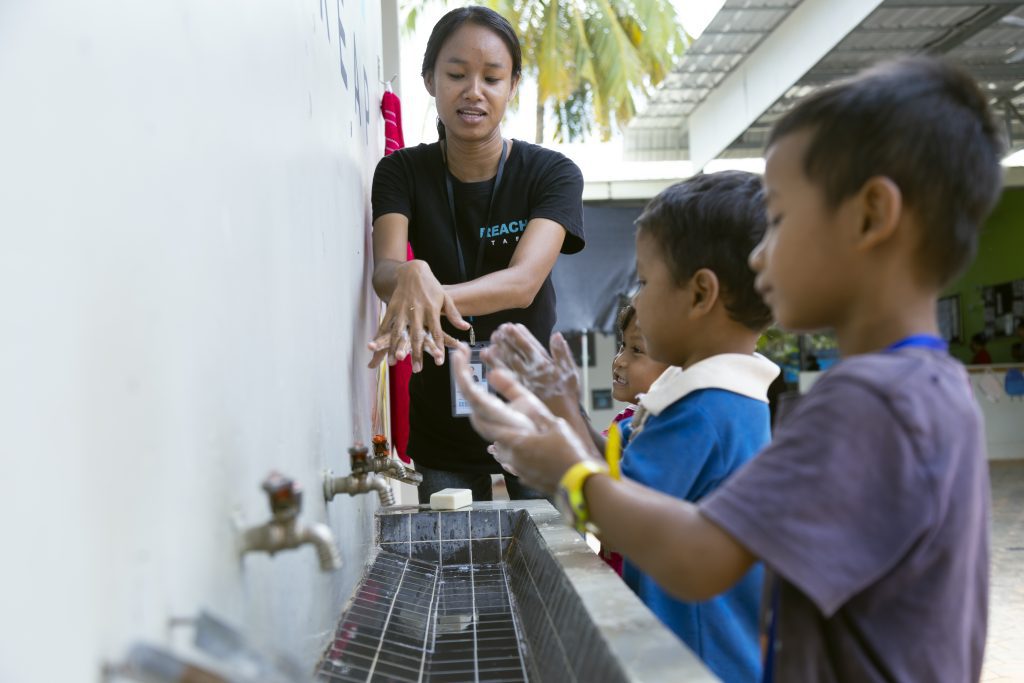
During COVID-19, Eco Soap Bank called for an urgent need to restrategise as their major supplier- hotels – went into lockdown worldwide. “We switched to factories that make commercial bar soaps as they also generate some volume of waste. We asked them to collect the waste for us and we were able to continue recycling waste. We distributed our 50 millionth soap at the end of 2023.” Soap factories worldwide waste an estimate a quarter billion of soap bars annually, and many supply this excess to Eco Soap Bank,” informs Samir. Explaining the process behind soap recycling, Samir says the soap collected from factories makes it to their recycling centres where it is crushed into powder. That mix is then pushed through an extruder machine and takes the shape of a bar of soap. “It’s a very simple process.”
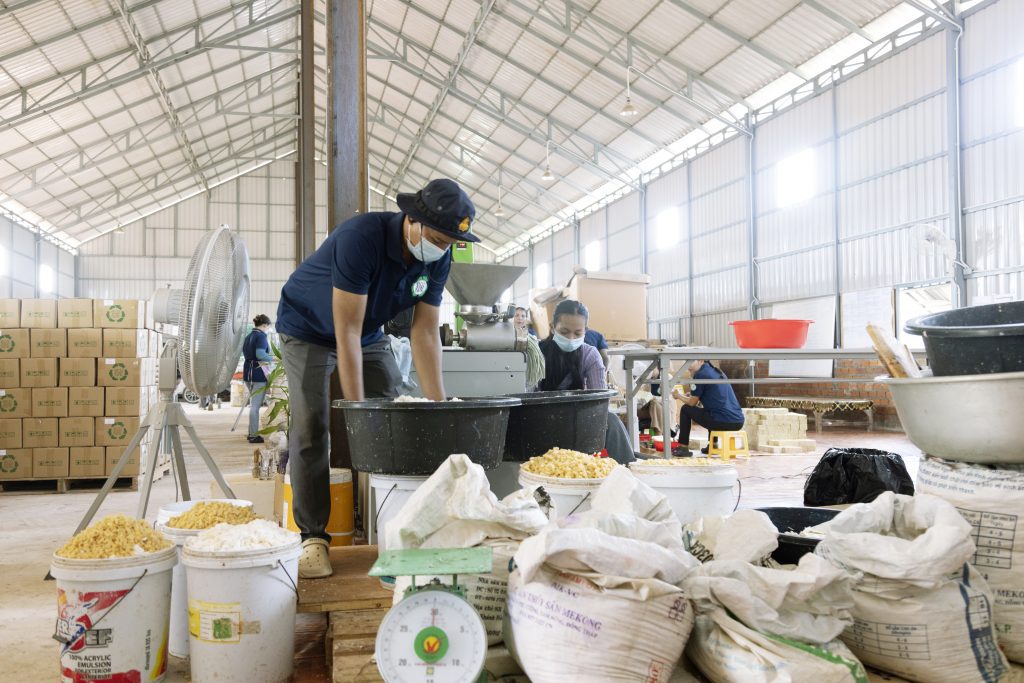
One of Eco Soap Bank’s recycling centre
The recycled soaps are then distributed through hundreds and thousands of partnerships with smaller and big organisations – from UNICEF to community schools or social centres. “We distribute soaps to the refugee camps through UN agencies as well as local schools,” reveals Samir as Eco Soap Bank makes 50000 bars of soap a day.
Eco Soap Bank began with the mission to recycle soap, promote basic hygiene, and provide employment to marginalised women around the world. “Currently 160 women work in the soap recycling facilities across the five countries, and we plan to increase the number to 212 by the end of the year.” Eco Soap Bank also helps women set up businesses by selling soaps at a nominal price. “If an employee is particularly excited, we also provide them with volumes of soap that they can sell in their community while also engaging in hygiene outreach. The vast majority of the women we employ prefer the employment route, however, we do have 320 other women who just exclusively sell soap,” adds Samir.
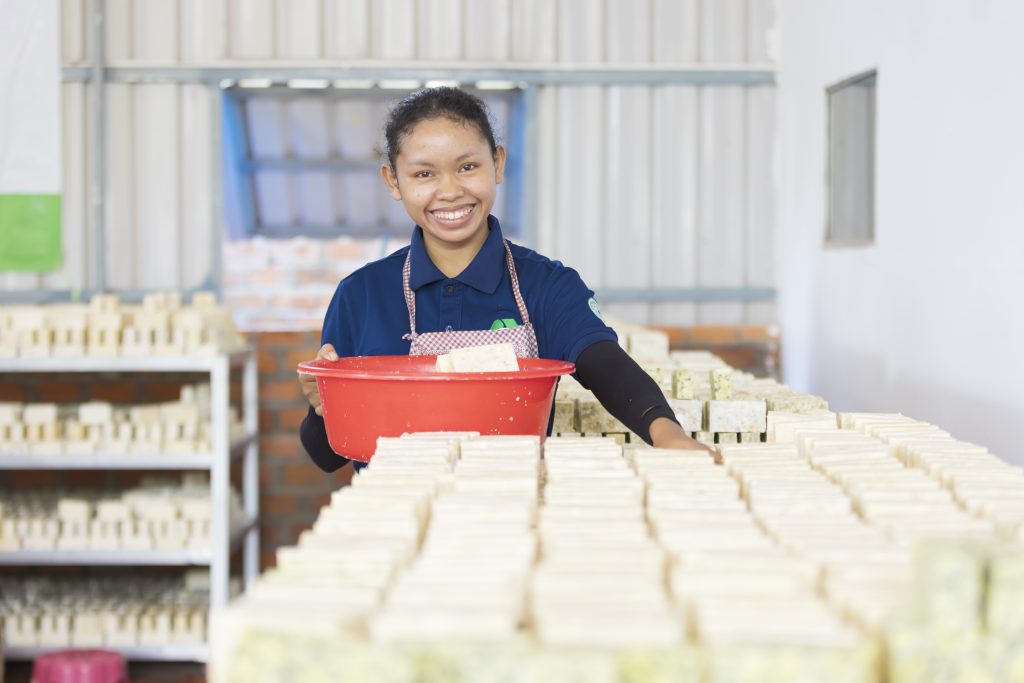
In the last decade, he has been humbled by the outpour of help and support for Eco Soap Bank, which led to the opening up of recycling centres in four more countries. ” I am amazed by people’s generosity to get involved and take your mission to the next level,” says Samir for whom that singular experience in Cambodia acted as a North Star, guiding him throughout.
Coming to India soon
Eco Soap Bank now plans to expand into India soon, for which they need to partner with factories here. “We also want to be the primary supplier of soaps to the refugee crisis in Bangladesh and Central Africa,” Samir says.
When Samir started Eco Soap Bank a decade ago, he had no idea about social entrepreneurship but he answered his calling and learnt on the way. “Nothing is out of reach for anyone on how to do, and I hope my story is a small example of that,” he signs off.


